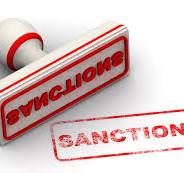Sanctions Enforcement on the Outer Edges of Trade Activity (Part II of II)

We all know what a “core” sanctions violation looks like. The heartland of such misconduct has been described on numerous occasions in OFAC enforcement actions and settlements. In this environment, however, companies have to be aware of conduct that may still violate the law but is not necessarily in the “heartland” of misconduct.
DOJ, OFAC and BIS are well aware of the broad reach of its criminal and civil statutes and regulations. Luckily, these three partners have issued some guidance on this area.
A recent Joint Compliance Notice outlined legal application of sanctions and export controls laws and regulations to non-US Persons. Companies should carefully review this important document and apply its principles to export activity.
Sanctions
“U.S. Persons” are required to comply with OFAC regulations, which includes: (1) all U.S. citizens and permanent resident aliens wherever they are located; (2) all persons physically in the United States; and (3) U.S.-incorporated entities and their foreign branches. Some of the sanctions programs extend to foreign entities owned or controlled by U.S. persons (e.g. Iran, Cuba, Russia and North Korea).
Non-U.S. Persons can also be subject to certain OFAC prohibitions by causing or conspiring to cause a U.S. person to violate U.S. sanctions, or engaging in conduct to evade U.S. sanctions.
Non-U.S. Persons usually run into enforcement liability when they engage in conduct involving: (1) financial transactions in U.S. Dollars, which require participation of U.S. banks typically through correspondent banking arrangements; and (2) attempts by foreign actors to disguise or mislead U.S. companies as to the ultimate destination or prohibited customer by altering relevant transaction documentation, including shipping information, bills of lading, invoices and other documentation.

The Department of Commerce’s Bureau of Industry and Security (“BIS”) enforces export controls and licensing, where applicable, for dual-use and certain munitions items covered by the Export Administration Regulations (“EAR”). U.S. jurisdiction extends to items covered by EAR anywhere in the world and to foreign persons who deal with them.
The EAR applies to the initial export and extends to (1) subsequent re-exports, that is, from one country to another or to an in-country transfer; (2) goods that incorporate a certain percentage of controlled U.S. content (above de minimis thresholds); and (3) exports from abroad of certain foreign-made items produced using U.S. software, technology or production equipment (subject to the foreign direct product rule).
The EAR applies to all shipments involving a third country, that is, a subsequent shipment after the direct shipment. Also, if a foreign party possesses an EAR-controlled item outside the United States and wishes to ship it to another paarty in another country, the foreign party will need to obtain a reexport license from BIS for such a transaction.
Similarly, the EAR applies to a non-U.S. company that manufactures items containing U.S.-origin components or software. The precise application will depend on the value of the controlled item within the overall item and whether the percentage exceeds the applicable de minimis threshold. In most cases the threshold is 25 percent, except for highly-regulated countries such as Cuba, Iran, North Korea or Syria, where the threshold is 10 percent.

Additionally, some foreign produced items using U.S.-controlled technology, software or production equipment are subject to the EAR when exported to certain countries or parties on the Entity List (e.g. Huawei). The most relevant example of this latter category is BIS’ imposition of a license requirement for Huawei and its subsidiaries after they were added to the BIS Entity List.
Criminal Enforcement
DOJ is authorized to bring criminal enforcement prosecutions for willful violations of U.S. sanctions and export control laws. 50 U.S.C. § 1705(c); 50 U.S.C. § 4819(b). Criminal conduct includes “caus[ing] a violation of any license, order, regulation, or prohibition issued” pursuant to IEEPA as well as “caus[ing]” or “induc[ing]” the doing of any act prohibited, or the omission of any act required by ECRA or the EAR. Willful violations of either statute are punishable by imprisonment of up to 20 years and a $1 million fine.
The full scope of DOJ’s new aggressive sanctions and export controls enforcement program has yet to be defined. DOJ has brought several cases against individuals, which is indicative of its likely approach for prosecution of companies but the full scope of DOJ’s strategy has not been revealed. For example, DOJ has brought charges against multiple foreign-based actors for allegedly seeking to unlawfully transfer U.S.-manufactured technology to prohibited destinations.















